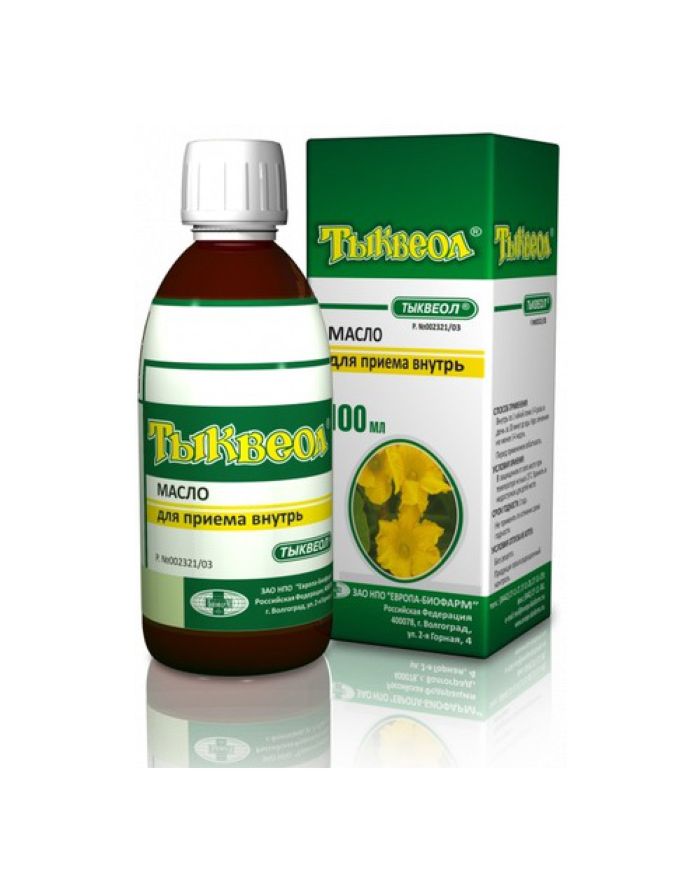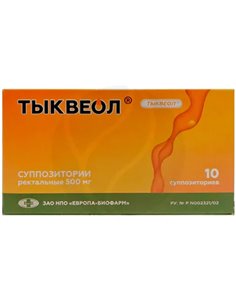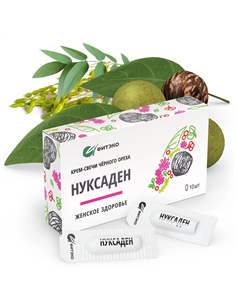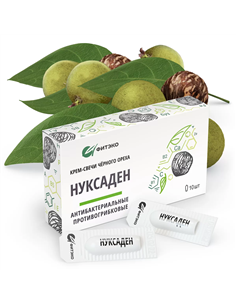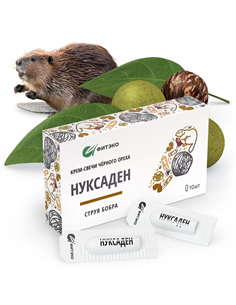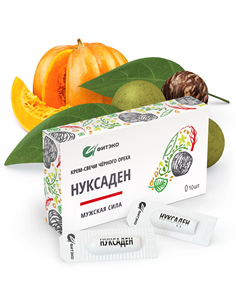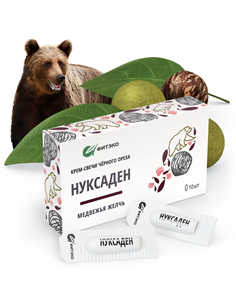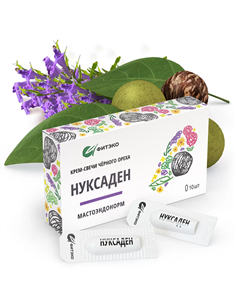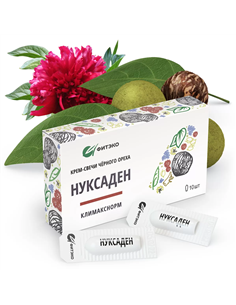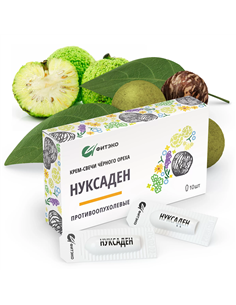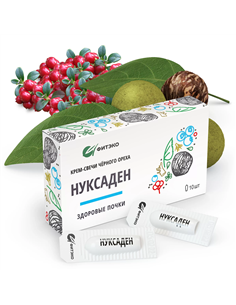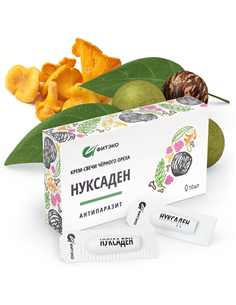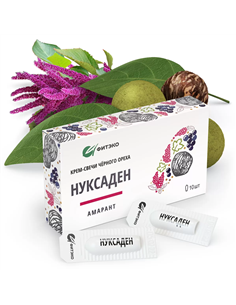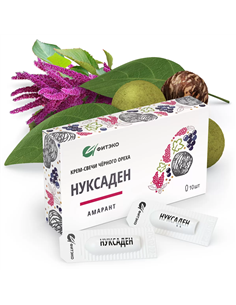Shopping Cart
There are no more items in your cart
1 bottle of oil for oral administration contains:
pumpkin seed oil 100 ml
Tykveol is a complex preparation containing biologically active substances obtained from pumpkin seeds.
The high content of tocopherols (alpha, beta, gamma, sigma isomers) and carotenoids has a pronounced antioxidant effect, inhibiting the processes of lipid peroxidation in biological membranes.
Essential phospholipids have a hepatoprotective effect, contribute to the restoration of the cell membrane of hepatocytes, its structure and function.
Essential fatty acids are involved in lipid metabolism, in the regulation of cholesterol and triglyceride metabolism, in the metabolism of arachidonic acid (as a biochemical precursor of prostaglandins).
The total set of pharmacological properties of biologically active substances in the Tykveol preparation determines its anti-inflammatory and cytoprotective effect when applied topically.
Tykveol improves the functional state of the biliary tract, changing the chemical composition of bile, has a mild choleretic effect, reduces inflammation in the epithelium of the biliary system.
Tykveol, possessing antiandrogenic properties, reduces the proliferation of prostate cells, normalizes its function by improving microcirculation and anti-inflammatory action.
Indications: - cirrhosis of the liver;
- chronic hepatitis;
- fatty liver degeneration;
- infectious hepatitis;
- toxic liver damage (drugs, industrial poisons, alcohol);
- cholecystitis (non-calculous);
- cholestasis;
- biliary dyskinesia;
- gastritis;
- colitis, enterocolitis (non-infectious genesis);
- haemorrhoids;
- atherosclerosis;
- prostatitis;
- benign prostatic hyperplasia.
Application during pregnancy and lactation
There are no clinical data on the efficacy and safety of Tykveol during pregnancy and lactation.
Contraindications
Hypersensitivity to the components of the drug.
Side effects
From the digestive system: rarely - dyspepsia, diarrhea.
Others: allergic reactions.
Interaction
Tykveol is not prescribed in combination with antacids, blockers of histamine H2-receptors, bismuth preparations, proton pump blockers.
How to take, course of administration and dosage
Tykveol oil for oral administration is prescribed 30 minutes before meals, 1 teaspoon 3-4 times / day for 1-3 months.
When applied topically and locally, the affected areas are lubricated 2-3 times / day.
For hemorrhoids and prostatitis (along with oral administration), microclysters are prescribed 2 times / day.
In case of periodontal disease, local applications of the drug are prescribed.
In gynecological practice, vaginal tampons soaked in Tykveol in a dose of 10 ml are used.
Overdose
Symptoms: diarrhea.
Treatment: it is necessary to reduce the dose of the drug.
Special instructions
In case of development of side effects, it is necessary to reduce the dose of the drug.
Tykveol is used both as monotherapy and as part of complex therapy.
The drug is compatible with any food.
In case of inflammatory and degenerative processes of the mucous membrane of the upper gastrointestinal tract, it is recommended to take Tykveol in the form of oil; you should avoid taking the drug in the form of capsules.
Use in pediatrics
There are no clinical data on the efficacy and safety of the drug in children.
pumpkin seed oil 100 ml
Tykveol is a complex preparation containing biologically active substances obtained from pumpkin seeds.
The high content of tocopherols (alpha, beta, gamma, sigma isomers) and carotenoids has a pronounced antioxidant effect, inhibiting the processes of lipid peroxidation in biological membranes.
Essential phospholipids have a hepatoprotective effect, contribute to the restoration of the cell membrane of hepatocytes, its structure and function.
Essential fatty acids are involved in lipid metabolism, in the regulation of cholesterol and triglyceride metabolism, in the metabolism of arachidonic acid (as a biochemical precursor of prostaglandins).
The total set of pharmacological properties of biologically active substances in the Tykveol preparation determines its anti-inflammatory and cytoprotective effect when applied topically.
Tykveol improves the functional state of the biliary tract, changing the chemical composition of bile, has a mild choleretic effect, reduces inflammation in the epithelium of the biliary system.
Tykveol, possessing antiandrogenic properties, reduces the proliferation of prostate cells, normalizes its function by improving microcirculation and anti-inflammatory action.
Indications: - cirrhosis of the liver;
- chronic hepatitis;
- fatty liver degeneration;
- infectious hepatitis;
- toxic liver damage (drugs, industrial poisons, alcohol);
- cholecystitis (non-calculous);
- cholestasis;
- biliary dyskinesia;
- gastritis;
- colitis, enterocolitis (non-infectious genesis);
- haemorrhoids;
- atherosclerosis;
- prostatitis;
- benign prostatic hyperplasia.
Application during pregnancy and lactation
There are no clinical data on the efficacy and safety of Tykveol during pregnancy and lactation.
Contraindications
Hypersensitivity to the components of the drug.
Side effects
From the digestive system: rarely - dyspepsia, diarrhea.
Others: allergic reactions.
Interaction
Tykveol is not prescribed in combination with antacids, blockers of histamine H2-receptors, bismuth preparations, proton pump blockers.
How to take, course of administration and dosage
Tykveol oil for oral administration is prescribed 30 minutes before meals, 1 teaspoon 3-4 times / day for 1-3 months.
When applied topically and locally, the affected areas are lubricated 2-3 times / day.
For hemorrhoids and prostatitis (along with oral administration), microclysters are prescribed 2 times / day.
In case of periodontal disease, local applications of the drug are prescribed.
In gynecological practice, vaginal tampons soaked in Tykveol in a dose of 10 ml are used.
Overdose
Symptoms: diarrhea.
Treatment: it is necessary to reduce the dose of the drug.
Special instructions
In case of development of side effects, it is necessary to reduce the dose of the drug.
Tykveol is used both as monotherapy and as part of complex therapy.
The drug is compatible with any food.
In case of inflammatory and degenerative processes of the mucous membrane of the upper gastrointestinal tract, it is recommended to take Tykveol in the form of oil; you should avoid taking the drug in the form of capsules.
Use in pediatrics
There are no clinical data on the efficacy and safety of the drug in children.
4602932003317
$11.76
Health Care
FITECO Suppositories of black walnut Nuxaden Antibacterial Antifungal 10pcs
ФИТЭКО
7930069040323
$11.76
$10.43
$11.76
$11.76
$11.76
$11.76
$11.76
$11.76
$11.76
$11.76
